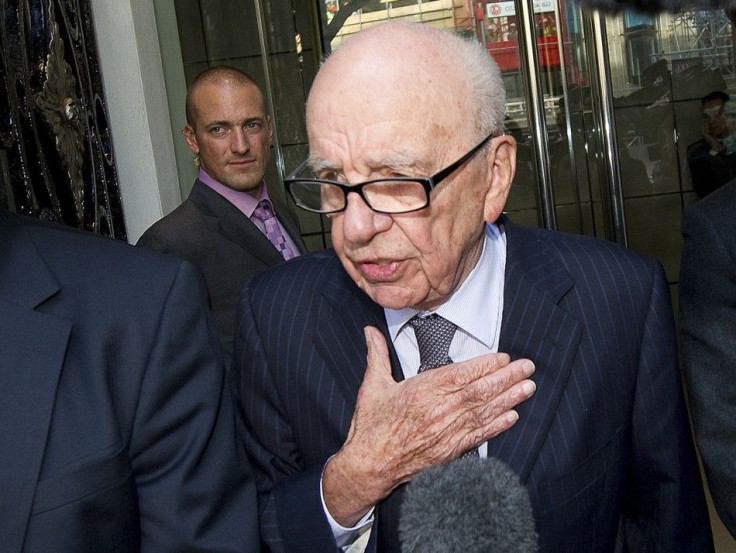Dear Rupert Murdoch: Please Eliminate Your Company’s Dual-Class Share Structure

Back in 2011, at the height of the hacking scandal that continues to periodically trouble News Corporation (NASDAQ:NWSA), there was much discussion about something called the “Murdoch discount.” Reporters and analysts alike theorized that the company’s shares traded below the intrinsic value of its assets because of the virtually unfettered control exerted by chairman Rupert Murdoch.
In the wake of the split of News Corp. into two separate entities earlier this year, however, we’ve heard nary a peep about the Murdoch discount. In fact, there has even been speculation that the Murdoch discount has been all but eliminated. Shares surged last summer on the announcement that News Corp. was considering a split and the stocks of the resulting companies, News Corp. and Twenty-First Century Fox Inc. (NASDAQ: FOXA), have performed well enough thus far.
As Twenty-First Century Fox convenes its shareholder meeting Friday in Los Angeles, shareholders like us wonder, has the Murdoch discount really evaporated? Or was the split merely a head fake, distracting investors from underlying governance problems that now exist not just at one company, but two?
Investors had been urging such a split for years, but because of Murdoch’s grip on the company’s voting power -- enabled by a dual-class capital structure that gave him voting power wildly out proportion with his economic interest -- shareholders were powerless to bring about such a change. With his thumb on the scale, Murdoch simply resisted their efforts.
By some estimates, this resistance cost investors billions of dollars. That it took an incident on the level of the hacking scandal to make Murdoch move forward with a split desired by so many investors for so long says quite a bit about his imperviousness to investor interests.
Let’s look, too, at the company’s response to calls from its investors for other changes. Prior to the split, some of the largest investors in both the U.K. and the U.S. pushed for fundamental changes to News Corp.’s governance structures, including the separation of the roles of chairman and chief executive officer and the elimination of the company’s dual-class capital structure.
Last fall, shareholder proposals calling for these reforms --including one submitted by the Nathan Cummings Foundation calling for an end to the dual-class structure – received the support of upwards of 60 percent of non-Murdoch shares. And yet, Rupert Murdoch is now both the Chairman and CEO of Twenty-First Century Fox.
Meanwhile, the dual-class capital structure continues at News Corp. and is replicated at Twenty-First Century Fox despite the board’s acknowledgement that doing so could perpetuate the possibility that the company’s significant voting stockholders – including Mr. Murdoch – could pursue their own interests to the detriment of other stockholders.
If Murdoch’s refusal to unlock value by separating the entertainment assets from the publishing arm was the only cause of the Murdoch discount, we could declare it a thing of the past. Yet the value-decreasing effects of his control of the company were due to more than this single issue.
Under Murdoch’s leadership, the company engaged in a string of acquisitions with questionable impacts on shareholder value. Think, for example, of MySpace and the purchase of Murdoch’s daughter Elisabeth Murdoch’s Shine Ltd. (a British television production company).
The company focused succession-planning on the Murdoch children. It developed a culture where invasive practices like phone-hacking were seen as a cost of doing business. Each of these practices was facilitated by the insulation Murdoch enjoys from his shareholders thanks to the company’s capital structure.
Unfortunately, rather than disappearing, the Murdoch discount now threatens to undermine the value of two companies. Rupert Murdoch can be an extraordinarily prescient strategic thinker. But even visionaries sometimes benefit from the wisdom of appropriate checks and balances.
As investors in both of the companies led by Murdoch, we’re continuing to press for change. A resolution sponsored by the Nathan Cummings Foundation will give investors another opportunity to call for an end to Twenty-First Century Fox’s dual-class capital structure at the shareholder meeting on October 18. Doing so is the only sure way for the Murdoch discount to be eliminated for good and for shareholders to unlock the true value of their investment.
Simon Greer is the CEO and Laura Campos is the Director of Shareholder Activities of the Nathan Cummings Foundation, a philanthropy committed to long-term value creation through its endowment portfolio.
© Copyright IBTimes 2024. All rights reserved.





















